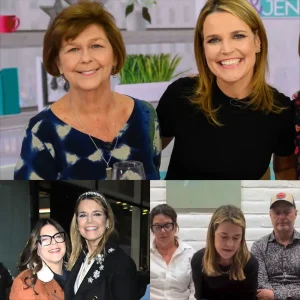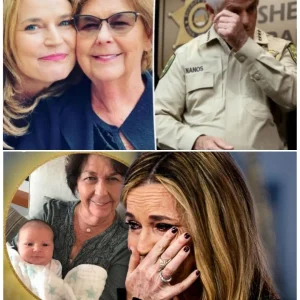When my brother Paul cast Grandma Eleanor out for not contributing financially, I didn’t hesitate to take her in. To me, family wasn’t about money—it was about love, loyalty, and standing by those who had always stood by us. As she rebuilt her life and found an unexpected second chance, Paul’s regret surfaced. But I couldn’t help but wonder—was it too late to mend what he had broken?
“Rachel, I can’t keep doing this,” Paul said one evening, slamming his coffee cup onto the table. “She’s costing too much.”
I took a deep breath, willing myself to stay calm. “Paul, she’s our grandmother. She raised us. Have you forgotten that?”
“That was then,” he scoffed. “Things are different now. She doesn’t bring anything to the table anymore. She just sits there, painting and wasting time.”
I clenched my jaw. “Those paintings mean something to her,” I argued. “And if we actually paid attention, they might mean something to us too.”
Paul shook his head, his impatience growing. “Sentimental nonsense. I have to think about the future. We can’t afford dead weight.”
Weeks passed, and Paul grew colder, more detached. Grandma Eleanor tried to hide her pain, but I saw it in her weary eyes and the way she clutched her paintbrushes like lifelines. Then, one evening, the final blow came.
“She has to move out,” Paul declared over the phone. “I can’t do this anymore.”
I felt my stomach drop. “And where exactly is she supposed to go?”
“She can stay with you,” he said flatly. “You’re the one who cares so much.”
His words stung, but I knew what I had to do. That night, I prepared the spare room, making sure it felt warm and inviting—like a home. When I told Grandma Eleanor, she simply smiled, though I noticed the glimmer of unshed tears in her eyes.
“Thank you, Rachel,” she murmured. “You’ve always had a kind heart.”
“You don’t need to thank me,” I whispered, pulling her into a hug. “This is your home too.”
The move was swift. Paul didn’t even lift a finger to help, standing in the doorway as we packed up the few belongings she had left. “You’re doing the right thing,” he muttered, though I had a feeling he was trying to convince himself more than me.
At my house, my children greeted Grandma with open arms. “Great-Grandma, can you teach us how to paint?” they asked eagerly, already setting up her easel.
For the first time in weeks, Eleanor’s face lit up. “Of course, darlings. Let’s create something beautiful.”
Days turned into weeks, and Eleanor flourished. Her passion for painting reignited, and my children became her biggest fans, marveling at every brushstroke. Encouraged by their enthusiasm, she began sharing her work online. To her surprise, people noticed. Compliments poured in, followed by requests to buy her art.
Then, one evening, a message changed everything. “Rachel, look at this,” Eleanor said, her hands trembling with excitement. “A local gallery wants to give me a solo exhibition!”
My heart swelled with pride. “Grandma, that’s incredible! You deserve this.”
The weeks leading up to the exhibition were a blur of excitement. Eleanor worked tirelessly, creating new pieces while my kids helped with everything from framing to writing descriptions. And when the big night arrived, the gallery was packed. People admired her work, each painting telling a story of resilience and reinvention. By the end of the night, nearly every piece had sold, and commissions were pouring in.
News of her success traveled fast. A few days later, Paul showed up at my doorstep, his usual arrogance replaced with uncertainty. “Rachel, can we talk?” he asked, his voice quieter than I’d ever heard it.
I folded my arms. “What do you want, Paul?”
He hesitated before looking down. “I made a mistake. I never should have kicked Grandma out. I see that now.”
Eleanor stepped forward, her gaze steady. “It’s a little late for that, Paul,” she said, her voice calm but firm. “You turned your back on family when I needed you most.”
“I want to make it right,” he pleaded.
She shook her head. “No, Paul. You only want to ‘make it right’ because you see my success now. Where was this concern when all I had was my art and my memories?”
Paul swallowed hard, guilt flashing across his face. “I—I was wrong.”
Eleanor’s expression didn’t waver. “You lost something more valuable than money. Family isn’t about what you can take from them—it’s about love, support, and loyalty. And you failed.”
Paul’s shoulders slumped. “Please, give me a chance.”
Eleanor sighed. “The only way forward is for you to truly understand what it means to value people, not just their worth in dollars.”
Paul nodded slowly, the weight of his choices finally sinking in. “I understand,” he whispered before turning away, a broken man.
As he left, Eleanor turned to me, her eyes filled with quiet strength. “Rachel, I’m grateful for you and the kids. You’ve reminded me what real family looks like.”
Her success continued to grow, but more than that, her story of resilience spread through the community. People came to her exhibitions not just for the art, but for the woman behind it—the woman who had been cast aside, only to rise stronger than ever.
One evening, as we sat in the living room, my kids painting at her feet, I smiled. “Grandma, you’ve changed all of us. You’ve shown us the true meaning of strength and family.”
She squeezed my hand, her eyes twinkling. “It’s never too late to find your strength, Rachel. And it’s never too late to teach others what family really means.”
Paul was left to wrestle with his choices, watching from a distance as Eleanor thrived without him. It was a hard lesson, but one he had to learn: true wealth isn’t found in money—it’s found in the love and respect of those who stand by you, no matter what.





